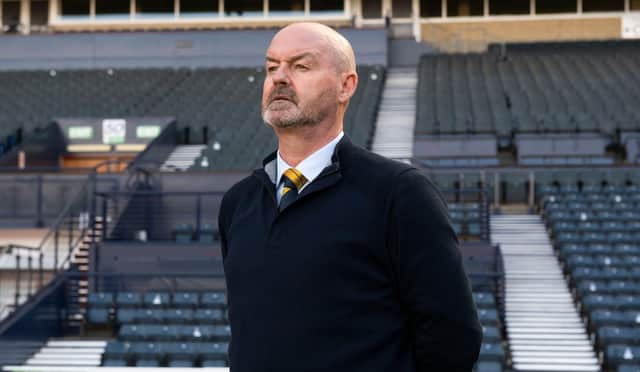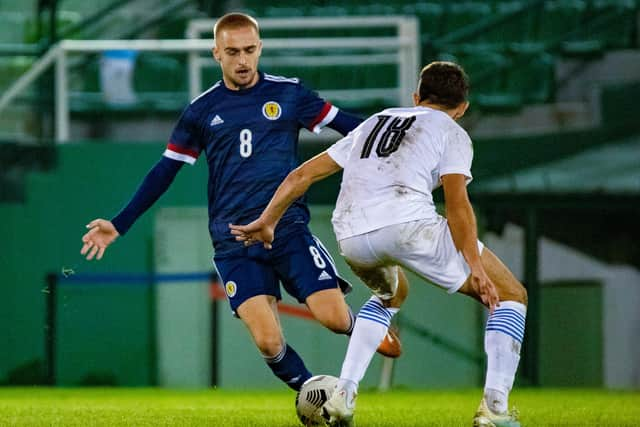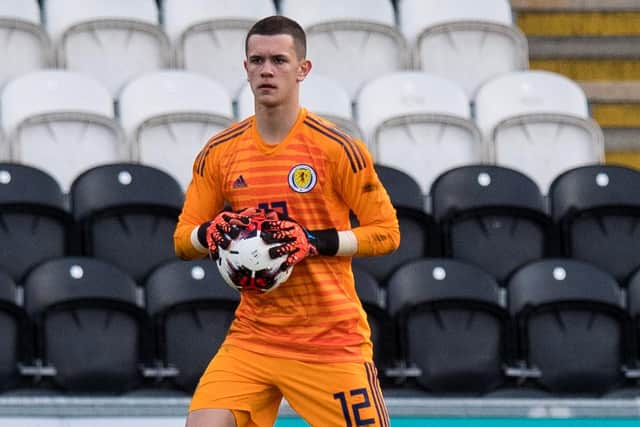Scotland's new generation key to the future as Steve Clarke ponders how and when to introduce fresh blood to national team


The end of a tournament for a nation which hoped for so much, but also the beginning of a potentially exciting new chapter.
National coach Steve Clarke is rightly lauded for guiding the national team to a first major tournament in 23 years. Group D defeats to Czech Republic and Croatia eliminated Scotland, who managed a courageous and confident display against England at Wembley in between. Ultimately, they exited the competition bottom of the section with only one point. Progress to a knockout stage therefore remains something of a holy grail.
Advertisement
Hide AdAdvertisement
Hide AdSome feel the team underachieved – and at times underperformed – while others are in the 'grateful just to have qualified' category. The Tartan Army seem quite polarised in that regard, but each and every footsoldier knows there is reason to look forward with World Cup qualifiers on the horizon this September.


Sometimes that is the only option with Scotland, for looking back can be too painful. Right now there are hints of a bright future with possibly more regular involvement in World Cups and European Championships.
Much hinges on how the next generation of internationalists are nurtured and utilised by the Scottish FA coaching staff. There can be no doubt that a clutch of potential Scottish caps are emerging, with some already playing at a high level of both domestic and European football with clubs like Rangers, Celtic, Chelsea and Manchester City.
The name on everyone's lips at the moment is Billy Gilmour, the 20-year-old Chelsea midfielder expected to enjoy regular game time on loan at Norwich City this season. His first international start at Wembley earned a man-of-the-match award and illustrated perfectly why he should have been in the team for the first game against the Czechs.
Scotland mainstay


Contracting Covid-19 ended his tournament after that England encounter but, barring injury, he will be a Scotland mainstay for the next decade and more. Others from the Euro 2020 squad like Rangers right-back Nathan Patterson, 19, and 21-year-old Celtic midfielder David Turnbull are also pushing for more game time in dark blue. They need to be blooded soon.
Behind them are a host of names on the periphery, many of them Scotland Under-21 internationalists with the desire and ability to win full caps. Midfielder Allan Campbell recently left Motherwell for Luton Town aged 22, Lewis Ferguson is one year younger but boasts four years of first-team experience and more than 100 games in total for Hamilton and Aberdeen, while striker Ewan Urain is a recent Under-21 conscript from the Spanish club Athletic Bilbao.
Midfield is undoubtedly Scotland's strongest department, which is perhaps why Ryan Gauld did not manage a Euros call-up despite an outstanding personal season with Farense in Portugal. Those above face a challenge to play ahead of Gilmour, Scott McTominay, John McGinn and Callum McGregor. Ryan Jack's return from injury has also to be factored in.
Defensively there is also a plethora of options but it is again important to develop younger players for the sake of Scotland's international future. A succession plan is vital for continuity in any professional sports team.


Advertisement
Hide AdAdvertisement
Hide AdPatterson will become first-choice right-back in time, while in the middle the case for including 24-year-old St Johnstone centre-back Jason Kerr grows stronger after a historic double cup-winning season. On the left side, the debate over how to deploy Andy Robertson and Kieran Tierney for maximum output will rage for years to come.
Bologna's Aaron Hickey and Hibernian's Josh Doig are both developing left-backs who, at 19, may consider the route to their preferred position closed off for now thanks to Robertson and Tierney. However, it is worth remembering that in five years' time Robertson will be 32. The energetic wing-back role may not suit him as he continues into his 30s, therefore a younger successor will be necessary.
Hope for others
There is considerable hope that 19-year-old Rangers winger Kai Kennedy can progress into the Scotland set-up in time. His repertoire of dribbling skills, pace and goals mark him out as one to watch. Manchester City midfielder Lewis Fiorini is the same age and enjoyed a useful loan spell in the Netherlands with NAC Breda last season. Fiorini's colleague at the Etihad Stadium, Cieran Slicker, is an 18-year-old goalkeeper progressing rapidly. All three are part of Scot Gemmill's Under-21 group.
Some of the above names will not make the breakthrough, and those who do won't be introduced in a youthful frenzy by Clarke. He is known for a more conservative approach but nor can he afford to delay the process. Scotland entered the European Championship with the least experienced squad in terms of caps, a statistic they must avoid next time they grace the biggest stage.
Of course, there is every chance some of the selection and nurturing issues above will become someone else's problem. Clarke is determined to exhaust every possibility to guide Scotland to next year's World Cup in Qatar, but thereafter he remains open to any career possibility – including a return to club management.
“I have a contract with the Scottish FA up until December 2022 and hopefully I can take the team to the World Cup finals in Qatar in 2022 as well, that would be great and then maybe I can think about club football,” he said in March.
For the next 18 months, Scotland's future looks to be firmly in his hands. The next generation are chapping loudly on Hampden's front door. A number of them need to be allowed in, looked after and developed into players capable of carrying the hopes of a nation.